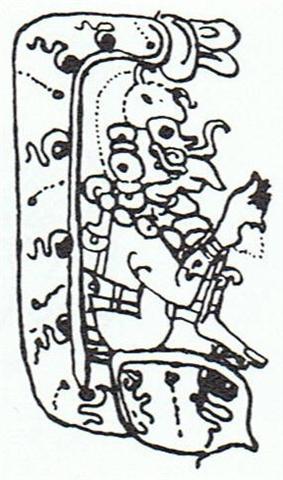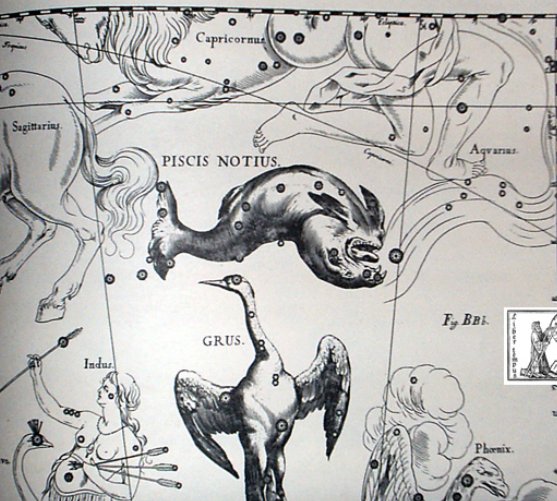When Venus changes from evening to morning star she
becomes invisible for 8 days (whereas it takes her 50 nights
of invisibility to change from morning to evening star).
South of the equator Venus should therefore ideally disappear for 8
nights before the spring equinox in September (at Hora Nui
22):
|
¬
Pu Pakakina A Ira ®
|
 |
 |
 |
 |
 |
 |
| Ga5-4
(114) |
Ga5-5 |
Ga5-6 |
Ga5-7 |
Ga5-8 |
Ga5-9 |
|
Al Sarfah-10 /
Uttara
Phalguni-12 |
Phekda,
β Hydrae
(179.3), η
Crateris (179.9) Deneb Cygni
|
no star listed |
π Virginis (181.0) |
12h (182.6) |
Alchita,
Ma Wei (183.1),
Minkar (183.7), ρ
Centauri (183.9) |
|
93 Leonis (178.0),
DENEBOLA
(178.3), Alaraph (178.6) |
ο Virginis
(182.1) |
|
Hora Nui 15 |
16 |
17 (260) |
18 |
19 (*182) |
20 |
|
ºSept 11 |
12 (*175) |
13 (256) |
14 |
15 |
16 |
|
'Aug 19 |
20 (*152) |
21 |
22 |
23 |
24 (236) |
|
"Aug 5 (*137) |
6 |
7 |
8 (220) |
9 |
10 |
|
σ Phoenicis (360.4) |
φ Pegasi (361.7) |
Dzaneb (362.4) |
η Tucanae (363.0), ψ Pegasi (363.1), 32
Piscium (363.2), π Phoenicis (363.4), ε Tucanae (363.6), τ Phoenicis
(363.9) |
no star listed (364) |
Al
Fargh al Thāni-25 |
|
0h (365.25) |
| Caph,
SIRRAH (0.5), ε Phoenicis (0.8) |
|
Tarahao
16 (75 = 31 + 28 + 16) |
17 (365 + 31 + 29
+ 17 = 442) |
18 (77
= 443 - 366) |
19 (444) |
20 (445) |
21 (80 = 446 - 366) |
|
ºMarch 13 |
3-14 (73) |
15 |
16 |
17 (*360) |
18
(77) |
|
'Febr18 (414) |
19 (50) |
20 (*336) |
21 |
22 |
Terminalia |
|
"Febr 4 (400) |
5 (36) |
6 |
7 |
8 (*324) |
9 |
|
¬
Pu Pakakina A Ira. |
 |
 |
|
Ga5-10 |
Ga5-11 (121) |
|
Pálida (184.6), Megrez (184.9) |
Hasta-13 /
Chariot-28 |
|
GIENAH
(185.1), ε Muscae (185.2), ζ Crucis
(185.4), Zaniah (185.9) |
|
Hora Nui 21 (*184) |
Equinox
(265) |
|
ºSeptember 17 (*180) |
18 (261) |
|
'August 25
(237) |
26 (*158) |
|
"August 11
(*143) |
12 (224) |
|
Uttara Bhādrapadā-27
/
Wall-14 |
χ Pegasi
(2.1), θ Andromedae (2.7) |
|
ALGENIB PEGASI
(1.8) |
|
Tarahao
22 (81 = 31 + 28 + 22) |
23 (448 = 366 + 82) |
|
ºMarch 19 (78 = 443 - 365) |
20 (444 = 365 + 31 + 28 + 20) |
|
Bissextum
(55 = *340 + 80 - 365) |
'Feburary 25
(55 = 22 * 5 / 2) |
|
"February 10
(*326) |
11 (42 = *327 + 80 - 365) |
But from Hora Iti 28 (Ga4-13,
Te Pito O Te Kainga) to the September
equinox there were 265 - 240 = 25 nights - a
number which characterizes Saturn. 25 - 8 = 17
(Venus).
|
Mercury |
Jupiter |
Venus |
Saturn |
Sun |
Moon |
Mars |
|
1 |
2 |
3 |
4 |
5 |
6 |
7 |
|
8 |
9 |
10 |
11 |
12 |
13 |
14 |
|
15 |
16 |
17 |
18 |
19 |
20 |
21 |
|
22 |
23 |
24 |
25 |
26 |
27 |
28 |
|
29 |
30 |
31 |
32 |
33 |
34 |
35 |
|
36 |
37 |
38 |
39 |
40 |
41 |
42 |
Pu means a cave and hiding inside
such a hole you cannot be seen.

This should remind us of the
English king who hid for 24 hours among the
branches of an oak:
... Robur Carolinum,
Charles' Oak, the Quercia of Italy and the Karlseiche
of Germany, was formally published by Halley in 1679 in commemoration of the
Royal Oak of his patron, Charles II, in which the king had lain hidden for
twenty-four hours after his defeat by Cromwell in the battle of Worcester,
on the 3rd of September 1651 ...
The Oak in question was probably
referring to
θ Carinae
(Vathorz Posterior) and the hidden king to μ
Velorum (Peregrini), both stars to the far right
in Hevelius' description:
.jpg)
Vathorz Prior (υ
Carinae) rose 162.1 - 147.9 = ca 14 nights
earlier than Vathorz Posterior.
Hora Iti
30 (242) - 14 = 228 (Hora Iti 16). 228 = 12 *
19. In my astronomy book υ Carinae
was indicated by number 365:

And in the
G text heliacal Vathorz Prior coincided with
Ga3-24. Then came the beginning of line Ga4 and
the great Tagata, where Gregorius XIII
had put the final of a square of 12 days after
spring equinox. In Roman times Vathorz Prior
coincided with the Sun in day 200 (at the
opposite side of the year compared to 13 * 29½).
|
®
Oromanga |
 |
 |
 |
 |
 |
 |
|
Ga3-23 |
Ga3-24 |
Ga4-1 |
Ga4-2 |
Ga4-3 |
Ga4-4
(87) |
|
ψ Leonis (146.4),
Ras Elaset Australis
(146.6) |
Vathorz Prior
(147.9) |
υ¹ Hydrae (148.4),
Ras Elaset Borealis
(148.7) |
Tseen Ke (149.9) |
ν Leonis (150.1), π
Leonis (150.6) |
υ² Hydrae (151.8) |
|
Hora Iti 14 |
15 |
16 |
17 (229) |
18 |
19 |
|
ºAug 10 |
11 |
12 (*144) |
13 |
14 (*146) |
15 |
| 'July
18 |
19 (200) |
20 |
21 (*122) |
22 |
23 |
| "July
4 (185) |
5 |
6 (*107) |
7 (*108) |
8 |
9 |
|
Enif, Erakis (329.2), 46 Capricorni, Jih
(329.3), ι Piscis Austrini (329.4), λ Capricorni (329.6), ν Cephei
(329.7), Deneb Algiedi (329.8) |
θ Piscis Austrini (330.1) |
Kuh (331.4) |
no star listed (332) |
η Piscis Austrini (333.4) |
22h (334.8) |
| Kae Uh
(334.0), Al Kurhah (334.4), Sadalmelik (334.6), ι Aquarii, ν Pegasi
(334.7) |
|
Febr13 (*329) |
14 |
15 (46) |
16 |
17 (413) |
18
(49) |
|
ºFebruary 9 |
10 (*326) |
11 (407) |
12 (408) |
13 (*329) |
14 (45) |
|
'January 17 |
18
(383) |
19 (384) |
20 (*305) |
21 |
22 |
|
"January 3 |
4 |
5 |
6 |
7 (372) |
8 (*293) |
In the
time of Bharani the Earth was here at a
maximum distance away from the Sun (aphelion):
... July 4 is
the 185th day of the year (186th in leap years) in the
Gregorian calendar. There are 180 days remaining until the
end of the year. The Aphelion, the point in the year when
the Earth is farthest from the Sun, occurs around this date
...
The Crater is an empty vessel, but at the opposite side of
the year was the Urn of Aquarius, filling the upside down Piscis Austrini.
Deneb Algiedi (the 'End' of the Goat) was here:

And the Phoenix would soon
arrive.






.jpg)



